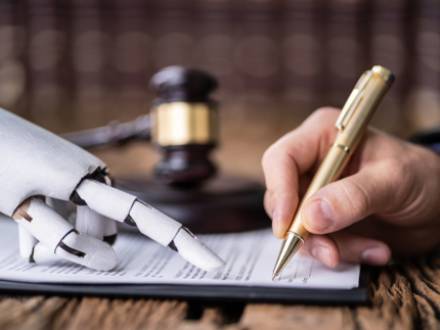1512 Artaius Parkway, Suite 300,
Libertyville, IL 60048
Call for a FREE Phone Consultation
847-549-0000
Video Consultations Also Available
 Spanish
Spanish Cantonese
CantoneseServing Clients Across 7 Illinois Locations
Can Robo-Signed Documents Provide a Foreclosure Defense?
 In the wake of the 2008 housing crisis, it came to light that bank employees or third-party contractors had signed thousands of foreclosure affidavits and mortgage documents without reviewing them. In turn, this led to wrongful foreclosures across the country. While some safeguards were put into place following this dark time, some Illinois homeowners may still face foreclosure cases built on questionable paperwork.
In the wake of the 2008 housing crisis, it came to light that bank employees or third-party contractors had signed thousands of foreclosure affidavits and mortgage documents without reviewing them. In turn, this led to wrongful foreclosures across the country. While some safeguards were put into place following this dark time, some Illinois homeowners may still face foreclosure cases built on questionable paperwork.
Knowing how to spot and challenge robo-signed documents can make all the difference between losing a home to foreclosure and keeping it. If you are facing foreclosure in Illinois, you should never assume the bank’s paperwork is without flaws. An experienced Round Lake, IL foreclosure defense attorney can identify robo-signed documents, potentially using them to fight for your home.
What is Robo-Signing?
When bank employees sign mortgage and foreclosure documents without first personally verifying the truthfulness and accuracy of the documents, this is known as robo-signing. Before the 2008 financial crisis, banks were under pressure to process an overwhelming number of mortgages and, later, foreclosures. Robo-signing involves:
-
A lack of verification occurs when bank employees sign documents stating they have reviewed and verified loan information and record accuracy, despite not having done so.
-
Vast amounts of paperwork are processed quickly, leading to the "robotic" signing of documents.
-
False affidavits are a key issue, including sworn statements that the content of the documents is true, yet these affidavits are signed by "robo-signers."
-
Mortgage assignment and foreclosure documents can also be robo-signed, often with inaccurate dates, forged signatures, and false notarizations.
-
The discovery of robo-signed documents often prompts investigations, temporary freezes on foreclosures, and increased scrutiny from lawmakers.
-
Robo-signed documents rarely adhere to due process requirements.
-
False affidavits can lead to tainted foreclosures, many of which are illegally processed.
-
Homeowners can use the existence of faulty paperwork to challenge the legality of the foreclosure proceedings.
Why Does Robo-Signing Still Matter All These Years Later in Illinois?
Illinois is a judicial foreclosure state. This means that lenders must file a lawsuit in court to obtain a court order to foreclose on a property. The court oversees the process to ensure legal procedures are followed and that the rights of the property owner are fully protected. In non-judicial foreclosure states, foreclosures can happen outside the court with little oversight.
Judicial foreclosures are generally lengthier and more expensive, due to the court’s involvement, but are more structured in the manner in which foreclosure disputes are resolved. Since the courts require proper documentation of mortgage ownership and the right to foreclose in a judicial foreclosure state, this means that robo-signed documents can provide homeowners with a valid defense against foreclosure.
How Are Robo-Signed Documents Spotted and What Legal Grounds Allow Challenges?
Homeowners and attorneys can often spot robo-signing because there are multiple documents with identical signatures from different people. Other times, signatures do not match from one document to another. Notaries are often from states far away from where the loan originated. Improper notarization can violate Illinois notary laws, and if the foreclosing bank cannot prove it owns the loan due to robo-signed documents, then the bank cannot foreclose.
If it can be shown that false or misleading robo-signed documents were knowingly submitted, the bank may face fraud charges. Finding robo-signed documents can delay or dismiss a foreclosure case, as the court may require the lender to re-file with proper documentation. This can provide leverage for homeowners to negotiate a settlement or loan modification, or, in some cases, the lender may vacate the foreclosure actions entirely.
Contact a Lake County, IL Foreclosure Defense Lawyer
Of course, not every defective or robo-signed document will stop a foreclosure, and a successful challenge requires an experienced Round Lake, IL foreclosure defense attorney from Newland & Newland, LLP. Our attorneys are local to Illinois, with many decades of experience between them. We always put our clients and communities first. Call 847-549-0000 to schedule your free consultation.
 Stop Foreclosure
Stop Foreclosure




















